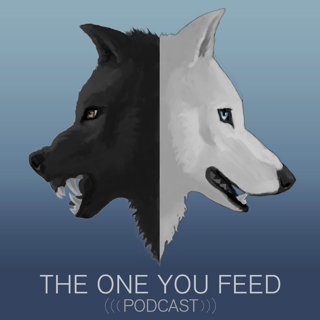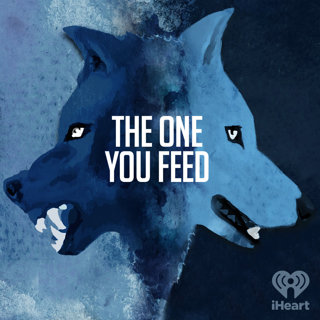
Mini Episode #6-Rumination
Eric explores rumination and how damaging it can be to our mental health.What is it?What's the difference between rumination and self reflection?Hebb's Law and the role it plays in rumination.How to escape rumination.Rough Transcript: A few weeks ago I was at one of the local meditation centers and people were doing walking meditation. There was a guy walking incredibly slow and everyone was backing up behind him because no one but a disabled snail can move at that pace. So people weren’t doing walking meditation they were standing and looking at this guy with a grouchy look on their faces.So I decided to stop him and explain that no one else could enjoy the meditation experience and it would be helpful if he could go just a bit faster.A few minutes later we sat back down for sitting meditation and my mind began racing. Should I not have said anything? Was I rude? Was this guy angry? So I decided that when we got up I would go over to him and explain myself and make sure we were good. Problem solved….except not for my mind. On and on it went re-playing the scene and thinking about the upcoming conversation.This is commonly know as rumination or brooding.Rumination is the compulsively focused attention on the symptoms of one's distress, and on its possible causes and consequences, as opposed to its solutions. Rumination is generally considered differently than self-reflection. Self-reflelction tends to offer new insights wheras rumination is just playing the same negative thoughts and feelings over and over.You will never plow a field by turning it over in your mind-Irish ProverbThe challenge with rumination (or brooding) is that it feels like we are doing something about the issue or problem by continuing to think about it and ponder it. However rumination is extremely destructive and has been strongly linked to deep depression and anxiety. In fact a The UK's biggest ever online test into stress, undertaken by the BBC's Lab UK and the University of Liverpool, has revealed that rumination is the biggest predictor of the most common mental health problems in the country.The tricky thing is that worry and rumination can seem essential part of coping effectively. The idea of letting go of rumination and worry can be frightening. The ironic thing is that rumination tends to increase anxiety and effectiveness in problem solving goes down as anxiety increases.In addition a mind that ruminates becomes more likely to continue to do it. We have talked on the show about how we create pathways in our brain that become every easier to fall into the more reengage them. This is not a fanciful idea or silly positive thinking. Neurosccience has something called Hebbs Law. The phrase, “neurons that fire together wire together” The meaning of Hebb’s axiom is that each experience we encounter, including our feelings, thoughts, sensations, and muscle actions becomes embedded in the network of brain cells, that produce that experience. Each time you repeat a particular thought or action, you strengthen the connection between a set of brain cells or neurons.Think of it like taking a walk in the woods. Your thoughts are like hikers. The first hiker has to blaze her own trail. But over subsequent trips a trail gets worn in to the ground and more and more hikers will take that trail. The more hikers that take the trail the clearer it becomes and the more likely that future hikers will take it. It takes much more energy to go off the trail. Our brains work the same way, there is a need to conserve energy. Our brains use about 25% of the body’s total energy so the brain is going to default to the neural circuits that take less energy.So it’s important to determine whether we are ruminating or problem solving. If the thinking does not lead to a course of action within a reasonable period it is probably rumination.Back to my story above, the first few minutes while I thought about the situation and came up with a plan of action was useful self- reflection and problem solving. Everything after that was useless rumination.in our interview with Dan Harris he talks about the difference between useless rumination and what he calls constructive anguish . The question he asks himself is “Is this useful?” If it doesn’t lead to meaningful effective action then it is useless rumination.If we are ruminating the most important thing is to come to a hard stop. As soon as the ruminative thought begins – that one that doesn’t lead to new insights but is the same path – you immediately have to distract yourself with something that requires concentration. The key at this point is to stop the cycle. We have to stop the brain cold, we need to stay off the path. So anything that distracts us and requires concentration will work. Play a game, solve a puzzle, anything is better than the rumination.So a quick summary, brooding is the process of playing negative thoughts and emotions over and over. It is also extremely destructive. It is a key indicator of depression, anxiety, high blood pressure and heat disease. We need to interrupt the brooding as soon as it begins. The best way to do this is to immediately switch the brain to something that requires concentration.Some of our most popular interviews that you might also enjoy:Kino MacGregorStrand of OaksMike Scott of the WaterboysTodd Henry- author of Die EmptyRandy Scott HydeSee omnystudio.com/listener for privacy information.See Privacy Policy at https://art19.com/privacy and California Privacy Notice at https://art19.com/privacy#do-not-sell-my-info.
8 Syys 20146min

Mishka Shubaly
This week we talk to Mishka ShubalyOur guest today is author Mishka Shubalay. After receiving an MFA from Columbia University, Mishka promptly quit writing to play music. He lived out of a Toyota minivan for a year, touring nonstop, and has shared the stage with artists like The Strokes, The Yeah Yeah Yeahs and The Decemberists.His Kindle Singles for Amazon have all been bestsellers. He writes true stories about drink, drugs, disasters, desire, deception and their aftermath. The Long Run is Mishka’s mini-memoir and details his transformation from alcoholic drug abuser to sober ultrarunner. His latest Kindle single is called Of Mice and Me and details him finding an orphaned baby mouse and the life lessons it brought to him.Also at the end of the interview we have a pre-release of a song from Mishka’s forthcoming record. In This Interview Mishka and I Discuss...The One You Feed parable.Watching the wolves battle since he was a kid.Nihilism and self defeating behaviors.How he celebrated his 5 years of sobriety.The ebb and flow of life.Remembering and forgetting our life lessons.How running is his meditation and prayerDoing the hard thing and embracing the challenges remind him that he wants to be alive. How its harder to train for six weeks than to run 10 miles at once. That smaller changes can be more difficult to maintain.Changing the default posture of our mind.How his mantra went from Fuck It to Try Every Day.Success being built on a series of failures.Learning to recover from our mistakesExtending the benefit of doubt to ourselves.The negative voice of the bad wolf.How we won't recover from addiction unless it is the most important thing in the world.His fear of AA.How there are no magic bullets.His public promise to attend an AA meeting.How it's worth trying anything once, expect maybe crystal meth.Our communal desire for having a lot of pain over a long period of time versus a brief intense pain.How following our dreams is not always the right approach.Playing music for the love of it.How the only thing that makes us happy is happiness.How getting everything we want doesn't always make us happy.Posting a picture of the The Strokes guitar player's ass all across Manhattan.Mishka Shubaly LinksMishka Shubaly Homepage Misha Shubaly Amazon Author pageMishka Shubaly on TwitterOf Mice and MeThe Long RunBeat The Devil Some of our most popular interviews that you might also enjoy:Kino MacGregorStrand of OaksMike Scott of the WaterboysTodd Henry- author of Die EmptyRandy Scott HydeSee omnystudio.com/listener for privacy information.See Privacy Policy at https://art19.com/privacy and California Privacy Notice at https://art19.com/privacy#do-not-sell-my-info.
2 Syys 201449min

Mini Episode #5- An Open Letter to the Jackass Who Left Us a 1-Star Review
Eric starts to respond to a negative review and uses as it a way to explore the negativity bias and steps to work with it. Some of our most popular interviews that you might also enjoy:Kino MacGregorStrand of OaksMike Scott of the WaterboysTodd Henry- author of Die EmptyRandy Scott HydeSee omnystudio.com/listener for privacy information.See Privacy Policy at https://art19.com/privacy and California Privacy Notice at https://art19.com/privacy#do-not-sell-my-info.
31 Elo 20148min

Jonathan Fields
Jonathan Fields describes himself as a father, a husband, a maker and a man who cares deeply about, loves and admires those closest to him and is humbled and grateful for the opportunity to create, to connect and to serve.He is the creator of The Good Life Project which is an audio and video podcast that was one of the inspirations for our show. He is also the author of Uncertainty: Turning Fear and Doubt into Fuel for Brilliance and Career Renegade.He is also the creator of the upcoming Good Life Project Summer Camp which I will be attending. In This Interview Jonathan and I Discuss...The One You Feed parable.Zooming out to get the meta view.How a good life isn't a place at which you arrive but a lens that you see through.The danger of "just a little bit more".Contentment versus striving.Appreciating what we have while taking action to achieve more.The difference between aspire and desire. Destroying possibility by clinging to certainty. Spending more time thinking about today than our legacy."The path to becoming is littered with the remains of those who missed the grace of being".Missing the present by being too focused on the future.Missing the little moments while hoping for the bigger moments.How we are not good at understanding what will make us happy.The importance of being around people you love.What a Good Life means to Jonathan-contribution, connection, vitality.Comparing our insides with other peoples outsides.The difference between meaning and happiness.Creating more meaning in our lives.How most of us don't know what we want to do with our lives and figure it out along the way.The paralyzing nature of heavy questions.How the person we are looking for is the person we are.Chipping away all the gunk that covers up who we are.Feeling like we have to have all the answers.Jonathan Fields LinksThe Good Life Project HomepageJonathan Fields HomepageJonathan Fields Ted TalkUncertainty: Turning Fear and Doubt into Fuel for BrillianceCareer RenegadeThe Good Life Project Creed Some of our most popular interviews that you might also enjoy:Kino MacGregorStrand of OaksMike Scott of the WaterboysTodd Henry- author of Die EmptyRandy Scott HydeSee omnystudio.com/listener for privacy information.See Privacy Policy at https://art19.com/privacy and California Privacy Notice at https://art19.com/privacy#do-not-sell-my-info.
26 Elo 201442min

Timber Hawkeye
This week we talk to Timber HawkeyeTimber Hawkeye is the author of the very popular book Buddhist Boot Camp. He offers a non-sectarian approach to being at peace with the world. His book was created from a series of blog posts and emails that friends encouraged him to publish. The book is a straightforward, plain spoken discussion of ways to live a better life. In This Interview Timber and I Discuss...The One You Feed parable.How feeding one wolf makes it stronger and more likely to show up again.The process of creating his book.Fight Club and the Parable of the Two Wolves.Leaving his corporate job to live in Hawaii and live a simple life."It's not the table, it's who is with you at dinner."That happiness is not waiting for us in the distance but is available to us now.How exhausting the pursuit of happiness can be.The difference between feelings and emotions.Making our own choices, paying our own prices.We are the victims of our own choices.The suffering we create for ourselves.That pain is inevitable but suffering is optional.Feeling are not facts.Naming our demons and feeding our faith.Going beyond setting intention to setting actions.Explaining our anger instead of expressing it.How quickly we cross the line from discussion to argument.How vulnerability helps us to connect,That your mind is like a spoiled rich kid.How what you will allow will continue.Timber Hawkeye LinksBuddhist Boot Camp homepageBuddhist Boot Camp FacebookBuddhist Bootcamp on TwitterTimber's TEDX talk Some of our most popular interviews that you might also enjoy:Kino MacGregorStrand of OaksMike Scott of the WaterboysTodd Henry- author of Die EmptyRandy Scott HydeSee omnystudio.com/listener for privacy information.See Privacy Policy at https://art19.com/privacy and California Privacy Notice at https://art19.com/privacy#do-not-sell-my-info.
20 Elo 201440min

Bonus Re-Release- Watsky
Watsky: In celebration of Watsky's new album and our 300,000 listen we decided to re-release our very first episode. It remains our most downloaded episode and one of my favorites. Enjoy.See omnystudio.com/listener for privacy information.See Privacy Policy at https://art19.com/privacy and California Privacy Notice at https://art19.com/privacy#do-not-sell-my-info.
16 Elo 201431min

Julien Smith
This week we talk to Julien Smith.Julien Smith is the CEO of Breather, an on-demand space company, as well as the New York Times bestselling author of three books. Two of these, Trust Agents and The Impact Equation, were written with Chris Brogan (a previous guest). The third, The Flinch, has consistently remained one of the top read Kindle books since it was published in 2011.Julien has been an author, a CEO, a professional voice actor, a radio broadcaster, and a consultant and speaker at some of the largest corporations in the world, including Google, Microsoft, American Express, Heineken International, and more. His work has also appeared in Cosmopolitan, GQ, CNN, and a host of other publications. His online work has been read by millions, literally. In This Interview Julien and I Discuss...The One You Feed parable.Building the habits to become the person you want to be.The difference between his life as an author and his life as a CEO of a start-up company.How hard it is to focus on personal development in the midst of a very busy, hectic life.His new company, Breather.The value in changing everything about yourself once in awhile.The Flinch.How often we talk about doing things but never do them.The hidden, unknown thing that stops us from doing things.We learn lessons the best when we are burned by them.Experiencing something is very different than hearing about it.How what we do now reinforces what we will do next time.New ideas come from looking at new things in new ways.Everything we do right now makes us into the person we are.Learning to recognize the flight or flight response as it happens.The power of tiny habits.Breaking things down into the smallest possible chunks.Using the principle of momentum.How we want the glory without the suffering.How there is no courage without fear.Eliminating the pointless, cowardly and habitual in favor of the useful.Making the choice to train ourselves.Remembering that we are making choices every day.Julien Smith LinksJulien Smith homepageBreather Buy Julien's booksJulien on Twitter Some of our most popular interviews that you might also enjoy:Kino MacGregorStrand of OaksMike Scott of the WaterboysTodd Henry- author of Die EmptyRandy Scott HydeSee omnystudio.com/listener for privacy information.See Privacy Policy at https://art19.com/privacy and California Privacy Notice at https://art19.com/privacy#do-not-sell-my-info.
12 Elo 201437min

Srini Pillay
Srini Pillay M.D. Founder and CEO of NeuroBusiness GroupSrini Pillay, M.D. is Assistant Clinical Professor of Psychiatry at Harvard Medical School and Invited Faculty at Harvard Business School. He is also the Founder and CEO of NeuroBusiness Group. He graduated with the highest number of awards during his residency training at Harvard. He is also a Certified Master Coach. His specific expertise is on helping companies reach their goals by coaching strategy acceleration, change management, innovation, sales optimization, stress management and many other corporate goals. He has 17 years of experience in brain imaging and has an international reputation as a human behavior expert with special emphasis on stress and anxiety. His latest book is: Life Unlocked: 7 Revolutionary Lessons to Overcome Fear. In This Interview Srini and I Discuss...The One You Feed parable.The power of possibility.The difference between conscious fear and unconscious fear.What brain science tells us about unconscious fear.How unconscious fear is a major factor in our lives.The CIRCA method to manage unconscious fear.Chunking your issues into smaller, more manageable pieces.Ignoring the mind's chatter.Giving your self a reality check.Remembering that "this too shall pass"Keeping our thoughts on what we can control.Focusing our attention on positive things for some amount of time."Yoga Rage"Turning on the default node network.Dealing with "bottom up anxiety".How to handle emotional flooding.Being willing to make mistakes and be wrong.How simple action can be the highest form of intelligence.Taking small risks by tinkering.Using preemptive perception to make better decisions.Embracing the complexity of who we are.How we are wired to manage disappointment versus achieving fulfillment.Probability vs possibility thinking.Mimicking the exceptions rather than the rules.Srini Pillay LinksNeuroBusiness GroupSrini Pillay on TwitterSrini articles in the Harvard Business ReviewLife Unlocked: 7 Revolutionary Lessons to Overcome FearYour Brain and Business: The Neuroscience of Great LeadersSome of our most popular interviews that you might also enjoy:Kino MacGregorStrand of OaksMike Scott of the WaterboysTodd Henry- author of Die EmptyRandy Scott HydeSee omnystudio.com/listener for privacy information.See Privacy Policy at https://art19.com/privacy and California Privacy Notice at https://art19.com/privacy#do-not-sell-my-info.
5 Elo 201445min






















